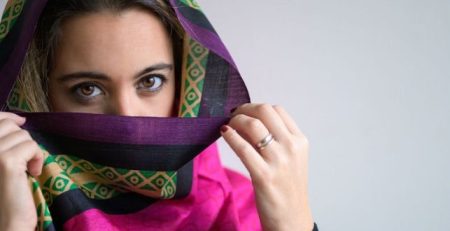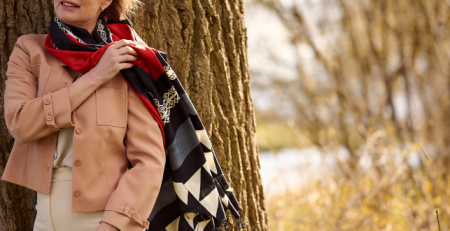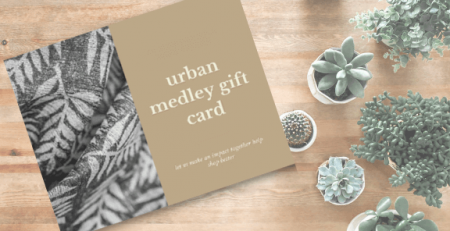How we protect the quality of our silk? Understanding our product certification
Understanding Product Certification
Are you GOTS certified? This is the first question we are often asked by multi-brand sustainable platforms or online portals we want to work. Often the same is asked by bloggers and content sharing sites that market themselves as promoters and advocates of sustainable fashion and ethical business practises. It is indeed surprising how little work and research they do before putting forward these questions.
As a transparent business we feel it is important to explain to our customers and supporters exactly how we protect the quality of our silk and the certification we do.
Silk for centuries has been considered one of the world’s most luxurious fabric and has long remained the textile of choice for the rich and affluent. Today silk has become more affordable and accessible. Unfortunately, consumers can be an easy target for counterfeiters. As a result of advances in textile processing, synthetic silk can be nearly as identical in appearance as natural silk, and often, we’re not able to tell the difference.
So how can we ensure that we aren’t being cheated? How can we easily identify genuine silk products from India?
The burn test (pulling up threads from both warp and weft directions and burning them) is an easy option but it’s not always feasible. There is an easier way to guarantee product authenticity – The Silk Mark tag.
The Silk Mark is an initiative undertaken by the Central Silk Board of India, which assures that all products with the Silk Mark tag are made of pure and authentic silk.
All Silk Mark tags are affixed with a coded and numbered hologram, which can be used to identify the authorised and registered user of the Silk Mark.
Thanks to this initiative by the Central Silk Board of India, consumers can buy Silk Mark tagged products knowing fully that the product is genuine.
Silk Mark is an assurance of pure silk and our manufacturer/designer partner Aeshaane is a certified member of the Silk Mark Organisation of India. (Registration no – 1054:2003-04)
For more details, visit http://www.silkmarkindia.com/blog/
GLOBAL ORGANIC TEXTILE STANDARD (GOTS CERTIFICATION)
GOTS is a stringent voluntary global standard for the entire post‐harvest processing (including spinning, knitting, weaving, dyeing, and manufacturing) of apparel and textiles made with organic fibre (such as organic cotton and organic silk). It includes both environmental and social provisions. Key provisions include a ban on the use of genetically modified organisms (GMOs), highly hazardous chemicals (such as azo dyes and formaldehyde) and child labour, while requiring social compliance management systems and strict waste water treatment practices.
As all fibre certified by GOTS must already be certified organic, GOTS certification means consumers are purchasing items certified organic from field to finished product.
Can everyone afford the certification?
Here’s what you should remember; understanding product certification is paramount- Not all sustainable brands can afford certifications and while they produce keeping fair trade principles in mind, they may not have an actual certificate.
Aeshaane has been certified by GOTS in the past (N° ONE-1509-140908-T-GOTS, however renewing it annually was becoming increasingly difficult, since the certification required that each shipment sent to the customer was produced using GOTS certified organic raw material sourced only from GOTS approved manufacturing facilities.
This was a clear conflict of our core values, which meant that instead of purchasing directly from the weavers at the grass root level, we had to source the raw fabric from big mills and manufacturing facilities recommended by GOTS, thereby paying a middle men and big traders. The poor weavers did not fit the bill, as they could not procure expensive certifications and more so renew them each year. The sole purpose to create employment for rural artisans was being defied. Also, increasing the cost of the base fabric meant higher mark-up’s, that was affecting the entire length of the supply chain.
This is how it works at the ground level! so if someone is providing GOTS certified products at a low price alarm (greenwashing) bells should be ringing
Further, GOTS made it mandatory to have an Effluent Treatment Plant or ETP at the workshop premises. An ETP is a very expensive waste water treatment plant which is particularly designed to purify industrial waste water and aims to release safe water back into the ecosystem.
Most of the small and medium scale cottage industries in India operate in an organic manner, by being connected to one common ETP that is purchased by pooling in funds, to help sustain small businesses in the long run, since it costs anywhere between 10000 – 15000 USD approximately or more, to install a single treatment plant. When a personal, single ETP at the workshop became mandatory for a small business, it was almost unimaginable to think of spending thousands of dollars for the machinery plus maintenance, and to construct the same on a rented premises.
Even if one thought of going ahead with it with the help of a loan, an additional massive space was needed close to the workshop, that would increase recurring overheads tri-fold, making it impossible for survival and sustenance.
What can we promise instead ?
- Our silk is Silk Mark certified.
- We buy our fabric directly from the weavers, who produce in the most ethical and sustainable manner.
- We dye, print and stitch under strict supervision in our workshops.
- We offer fair pay and fair working conditions
- There is no child labour used ever.
We believe in being maximum possible sustainable and are happy to answer any doubts our clients may have. We emphasize understanding product certification is the only way to better your sustainable buying choice.
Image credit : Neesha Amrish
Author: Shayonti Chatterji










